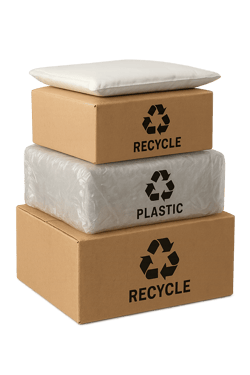Is your operation ready for the next wave of UK plastics rules? The clock is ticking for mid-sized businesses to adapt, or risk being caught scrambling.
Overview of upcoming regulations

The UK’s rules on plastic packaging are changing quickly. New bans on single-use items cover things such as cutlery and polystyrene food containers; full details are available in the Single-Use Plastics Regulations 2022. The Plastic Packaging Tax has been in force since April 2022 and applies to plastic packaging that contains less than 30% recycled content. Extended Producer
Responsibility for packaging sets out reporting duties and fees linked to the environmental cost of packaging, and the government guidance explains who will be affected and what data will be required.
Taken together, these steps move the financial and operational burden of waste toward producers. As such, for many mid-sized firms, that will mean changes to sourcing, design, and even how packaging is recorded and reported.
Impact on Mid-sized Businesses

Mid-market companies face a squeeze. They do not have the same scale as multinational buyers, and they cannot pivot as instantly as some smaller firms. That creates trade-offs across procurement, production and logistics.
What’s more, sourcing needs more evidence than ever. Suppliers of films, cartons and tapes must increasingly supply proof of recycled content and confirm recyclability. Packaging that used to be chosen purely for durability or cost may now need to be designed so that components separate easily for recycling. Logistic partners, warehouses and recyclers will expect formats that match new sorting and processing flows; a packing format that works next quarter might not be compliant in a year.
Managing Costs and Compliance
Contrary to popular belief, eco-friendly packaging does not automatically equate to higher long-term costs. The change can also bring additional benefits, such as reducing exposure to higher punitive taxes and processing fees and improving operational reliability.
As a result of the changes, using higher recycled content reduces liability under the Plastic Packaging Tax (see HMRC guidance). Simplifying packaging so fewer materials are fused together makes recycling easier, which therefore cuts downstream processing costs considerably. Choosing mono-material packs removes complexity at sorting points and reduces contamination risk.
Tracking damage, return and waste rates gives practical intelligence on where packaging needs work. This feedback helps prioritise the facilitation of delivery for the largest gains for compliance and cost control. Some businesses are trialling returnable transit packs or refillable systems, which change the cost equation in favour of lower lifetime expense. When all these parts are added together, they can help to increase the brand’s eco reputation and credentials in the minds of stakeholders and end users.
Opportunities to Lead
Regulatory change separates cautious firms from those that use the transition as a point of advantage. In this regard, companies presenting clear, measurable packaging performance win credibility with customers and with procurement teams that are now asking for ESG and EPR evidence.
Public procurement, retail buyers and investors are paying more attention to packaging metrics. Demonstrating reduced plastic tax exposure and waste, plus visible moves toward circular models, can sway purchasing decisions and enhance brand reputation.
How Sustainable Packaging Can Futureproof Your Operation
Our Sustainable Packaging range is built for businesses that need practical, compliant options. The range includes stretch films, void fill materials and document wallets, plus a wide selection of other packaging products that are suitable for mid-sized operations. A huge number of products in the range are plastic tax-compliant and contain at least 30% recycled content, which helps reduce PPT exposure and simplifies supplier reporting.
The approach used with customers typically blends a packaging audit, material sampling, and pilot runs so packaging changes do not disrupt daily operations. Options include higher recycled content films that perform like standard films, void fill solutions that cut transit damage, all-paper options, and document wallets that avoid mixed-material lamination problems at downstream recycling centres.
Packaging Regulations, Wrapped Up
Preparing now for regulatory change turns a potential challenge into an opportunity for efficiency, sustainability and market leadership.
If you want a simple audit or a more comprehensive breakdown to identify potential wins for your packaging, we can help. Send a message, email sales@allpack.uk.com, or call 01543 396 700 today to find out how we can help.